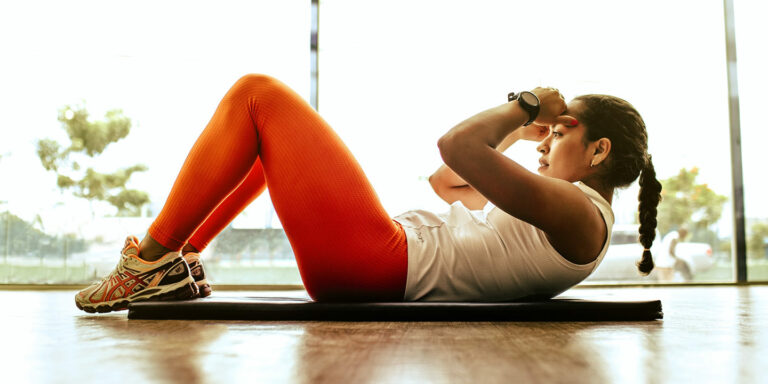Protein are the most important building blocks of our body and are one of the essential nutrients in a sports diet. There is no way to replace them and we should take them in a balanced diet every day. They are responsible for the proper function of most of our body's organs and are primarily associated with building or protecting muscle mass. They form the basis of muscle cells, which is why we gym-goers are most interested in them. Proteins are also called proteins, these can be broken down into smaller molecules called amino acids.
We know of 22 amino acids, 9 of which are essential (essential). The body cannot create these amino acids on its own, so they must be introduced into the body through the diet and then through metabolism. Proteins are subject to breakdown, an inevitable process of our body, but also to new synthesis (creation) from the ingested proteins (amino acids), so sufficient intake from good quality sources is important. Intense training leads to the breakdown of muscle proteins, so in sports we must take care to have a sufficient or higher protein intake than the general population...
Two basic groups of proteins:
1) complex proteins: we consider these to be proteins that contain all the essential amino acids. They are the most valuable proteins with high biological value and are found in fish, whey, eggs and dairy products.
2) non-complex proteins: This group includes proteins from grains, vegetables, soya, seeds and nuts. They lack some essential amino acids and therefore have a lower biological value.
BH = biological value of protein
According to the type and amount of amino acids in the protein, we judge its biological value. The more similar the amino acid composition of proteins is to that of human proteins, the higher their BH is, also their absorbability is higher.
In general, animal proteins are more valuable than plant proteins. In fact, some proteins of plant origin lack important essential amino acids. The body cannot make up the missing amino acids itself, so these proteins cannot be of full value to the body. The BH of a food in % corresponds to the amount of complete protein in grams contained in 100g of food.
Amino acids:
Essential (essential): histidine, lysine, tryptophan, phenylalanine, methionine, valine, isoelucine, leucine, threonine.
Non-essential: alanine, asparagine, aspartic acid, cysteine, glutamic acid, glutamine, glycine, proline, tyrosine, arginine, serine
high BH have branched chain amino acids BCAA: leucine, isoleucine, valine
BH v %
Whey hydro isolate 96 %
Eggs 94 %
Whole milk 86 %
Low-fat cottage cheese 86 %
Cod fillets 80 %
Beef 76 %
Soya beans 72 %
Yeast 69 %
Potatoes 67 %
Wheat flour 35 %
Leguminous vegetables 30 %
Protein intake:
Opinions on protein intake in the general population and athletes are very controversial and varied. In pro bodybuilding we encounter many extremes, e.g. 3-4g of protein per kg of body weight, but for strength athletes 1.4 - 1.8g/kg of body weight per day is recommended. This intake is completely sufficient to cover the body's needs for recovery and building new muscle mass. When energy intake is reduced, e.g. when there is a lack of carbohydrates in the diet, it is recommended to increase protein intake to 2g/kg. In women, the need for protein is lower, as a rule of thumb 1.2 - 1.6g / kg. This is due to a lower proportion of muscle mass and, conversely, a higher proportion of fat mass.
Protein deficiency:
With insufficient protein intake, there is a risk of stunted growth (height and muscle), impaired immunity, slow wound healing and organ damage. Likewise, excessive protein intake (in the long term) is also risky; there is a risk of increased blood pressure, excessive load on the liver and kidneys, and the associated increase in uric acid in the blood.
Protein in the gym:
Perhaps the most important function of protein is to support anabolic states in the body. These are states where the body can build new muscle mass, so it is essential to get enough good quality protein in the diet. Another ability of protein is called regenerative, if you train your muscles, you must also regenerate them. Only this will allow you to train every next workout at full strength if the muscles are sufficiently regenerated. Proteins prevent catabolism (muscle breakdown) in the body, so they also have a protective function in the body.
Protein is really important for our body. Therefore, watch their intake in your diet, pay special attention to them in the period of building muscle mass as well as in the effort to lose weight and burn excess fat. Choose high quality proteins from meat: chicken, turkey breast, lean beef, occasionally game, eggs, fish: cod fillets, tuna in its own juice, even fattier = salmon, dairy, semi-fat, no need to be afraid of milk fat i.e. cottage cheese, yoghurt, Cotagge, cheese - but beware of high-fat. For immediate absorption and a supply of amino acids for your muscles, opt for high percentage whey based protein shakes, either concentrate (general population and recreational athletes) or whey isolate or whey hydro isolate (bodybuilders and elite sport).
Next week we will take a closer look at carbohydrates, their distribution and importance in sports nutrition.




